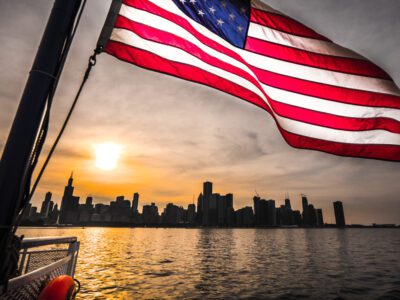EXCLUSIVE: Under increasing pressure from an unholy trio of sweepstakes casinos, prediction markets and their long-term heavy hitter national sportsbook opponents, serious cracks are beginning to appear in the hitherto strong California Tribal gaming alliance.
Not one but two of the Golden State Tribes–who have a state and federal-sanctioned monopoly on gambling in California–have now broken ranks and spoken out in support of sweepstakes casinos, ahead of a potential ban on the quasi-legal gambling sites.
Last week, the Big Lagoon Rancheria Tribe of Yurok and Tolowa Indians, who are located in Humboldt County, 200 miles north of San Francisco, sent a letter to California lawmakers urging them to halt progress on Assembly Bill 831, which would outlaw sweepstakes.
Tribal Chair Virgil Moorehead argued: “AB 831 threatens tribal sovereignty and self-determination. It does not have the unanimous support of California’s Indian Tribes. [And disproportionately impacts] Tribes that do not have the geographic benefit of being able to operate large gaming casinos.”
Commercial Threat
The Big Lagoon Rancheria move follows the recent conditional partnership between controversial VGW–operators of Chumba Casino, Luckyland Slots and Global Poker–and the Kletsel Dehe Wintun Nation of the Cortina Rancheria Tribe, who are based near the town of Arbuckle in north central California, which aims to launch a new free-to-play sweepstakes casino in the state.
Until now, California’s 109 federally-recognised Tribes have presented a united front against commercial threats.
Seventy-three Tribes in the state operate 76 casinos, among them two of the largest in the country, the Yaamava’ Resort Casino and Pechanga Resort & Casino.
This unity was especially evident–and strengthened–in 2022 when unnamed commercial entities attempted to legalise sports betting without Tribal approval.
The ballot–a precondition for approving sports betting in California–was a spectacular failure, with over 82 percent of the public voting against it.
Although neither the Big Lagoon Rancheria nor the Kletsel Dehe Wintun Nation currently runs a gaming establishment, both benefit from California’s Indian Gaming Revenue Sharing Trust Fund, which redistributes money from an industry worth some US$12.1 billion (£9.8bn) a year – nearly 28 percent of all U.S. Tribal gaming revenue.
Divide And Rule
Leaders of California’s largest gambling Tribes, along with the Indian Gaming Association (IGA), warned in a recent IGA podcast that sweepstakes operators are attempting the same divide-and-rule tactics that have been tried and failed in the past.
Victor Rocha, a member of the Pechanga Band of Luiseño Indians and Conference Chair of the IGA, called these divisive tactics “unimaginative”.

And James Siva, Chair of the California Nations Indian Gaming Association and Vice-chair of the Morongo Band of Mission Indians, said: “I don’t blame the Tribes that make these decisions that are best for them.
“[But] with these agreements, [commercial operators] are trying to weaken [us].
“Tribal gaming is as different as commercial gaming as can be, and that is why they try to pick off these smaller tribes.”
“Collectively we have done so much to improve the lives of tribal communities across California. It’s about reminding everyone that we are sovereign nations.”
Marriage à la Mode
Yet, paradoxically, the emerging threat from sweepstakes and prediction markets, may propel Tribal gaming and their former top line opponents, such as FanDuel and DraftKings, who have long been challenging the Indian gaming hegemony, into a new friendship of convenience.
And this alignment comes at a potentially pivotal moment.
Recent survey data from the Politico-Citrin Center-Possibility Lab suggests public opinion is shifting over the future of sports betting in California.
Some 60 percent of 1,400 respondents said they were “open” to legalising sports betting; crucial, as a constitutional amendment is required before any form of legalisation can occur in California.
Should the Tribes act and mount a 2026 push to forge new legislation that would legalise online sports betting in California–a possibility they have hinted at in the past–their efforts could be strengthened by alliances with the former adversaries.
Tribal leaders, nevertheless, have stressed they will not attempt legalisation until they are sure of public support.
And they have also emphasised that any commercial partnerships must be grounded in transparency, humility and recognition of Tribal sovereignty.




